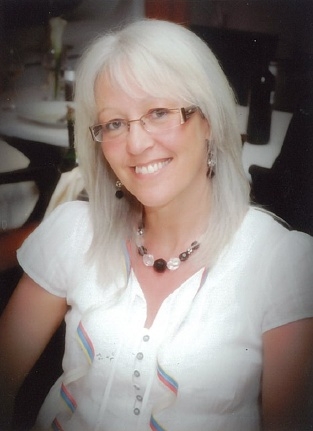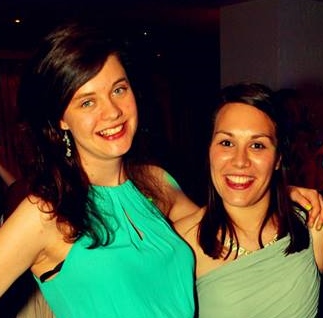Wellcome Trust Senior Investigator Award
Congratulations to Prof Alun Davies, one of the world’s foremost developmental neurobiologist in School of Biosciences for winning Wellcome Trust Senior Investigator Award : Tumor Necrosis Factor superfamily forward and reverse signalling in neural development (£2,043,742; 2014 – 2019).
Professor Alun Davies studies the molecular mechanisms that govern the survival of neurons and the growth of neuronal processes (axons and dendrites) during development. His team recently discovered that members of the tumor necrosis factor (TNF) family of extracellular signalling proteins play important roles in regulating axon growth. As part of his Senior Investigator Award, Professor Davies plans to study how different TNF proteins orchestrate the establishment of patterns of neural connectivity during development and to unravel the underlying molecular mechanisms. The results of Professor Davies’ work will further our understanding of how the nervous system gets wired up and may shed light on what goes awry in certain neurodevelopmental disorders.
For more information:
http://www.cardiff.ac.uk/news/articles/cardiff-scientists-honoured-by-the-royal-society-6794.html
http://www.cardiff.ac.uk/about/honours/categories/alun-davies.html
https://royalsociety.org/people/fellowship/2011/alun-davies/
Enriching Student Life award – Dr Steve Riley

Dr Steve Riley was recently presented with the Enriching Student Life Award in recognition of his contribution to enhancing the student experience. Here Stephen tells us more about his work.
Name: Dr Steve Riley
School: School of Medicine
Role: I am currently Clinical Senior Lecturer and Director of Phase 1 of the MBBCh programme.
Your Background: I am a nephrologist who has developed an interest in medical education and I have undertaken an apprenticeship around the different roles and responsibilities required to deliver a complex programme like medicine. I am implementing case based learning which aims to increase student’s participation in and responsibility for their own learning. We aim to help the students learn through interaction in small groups and ensuring that the learning is delivered within the clinical context and that patients and high quality patient care are at the centre of the curriculum.
Highlights of your role
The highlights are trying to make the student experience as good as we can. So this means making it interesting, stimulating and interactive whilst most of all making it fun for the students. So being able to help students in small groups by discussing principles of clinical practice and linking them to basic science are the best bits.
Any tips / advice for other staff working in similar roles?
Always try to listen to students and make each part of their time in CU as good as we can make it. Even issues that we see as trivial can make a big difference to student’s perception of the course and the faculty. Even a tiny intervention can go a long way to improve a student’s experience.
More about HEA awards
In last edition of the newsletter we congratulated Dr Stephen Rutherford and Dr Keren Williamson who have been successful in winning bids for teaching awards from the Higher Education Academy (HEA) on the area of collaborative learning. There were 230 applications across the UK, with only 12 grants awarded. So congratulations to both Stephen and Karen.
Dr Stephen Rutherford and Dr Keren Williamson tell us more about their projects.
Dr Stephen Rutherford from the School of Biosciences has won a Teaching Development Grant from the HEA to undertake the study of ‘Shadow Modules’ to identify best practice for running collaborative activities.

Optimising the impact of collaborative learning through ‘Shadow Modules’
Steve Rutherford, Sheila Amici-Dargan and Andrew Shore (School of Biosciences)
Teaching Development Grant (Departmental) from the Higher Education Academy. One of 12 grants awarded nationally across the sector from over 230 applications.
Peer-support of learning is a powerful enhancement to the learning experience. By involving students actively in supporting the learning of their peers, they become partners in the learning experience, rather than merely consumers of information. Collaborative activity enhances learning and cognition, but also empowers students to participate in supporting their learning and that of their peers. With the changing climate of schools ‘teaching to test’, it is essential for HE that students are encouraged to develop as independent learners, and collaborative learning enhances this.
We have piloted a collaborative-learning approach, ‘Shadow Modules’, student-led learning groups supporting taught modules. Outputs are shared with the wider peer-group using ICT (GoogleDrive, Wikis, Prezi, social media), therefore, benefits are not restricted to active participants, but for all students on the module, as well as future cohorts. Students find these useful and effective in supporting their learning on a module. A significant aspect of this approach, additionally, is that Shadow Modules feed-back to the academic module itself and have been shown to impact on the design of teaching sessions and the curriculum itself, making students true active partners in the HE experience.
This project will assess the impact of 3 models for Shadow Modules:
a) Collaborative study groups, students work collectively, solving problems, designing their own resources and sharing outputs with peers through ICT.
b) Peer-teaching, where a near-peer from a previous cohort of the module, or several from the peer group itself, runs didactic teaching sessions for students.
c) Support though social media, a small number of individuals identify open-source study resources, share notes or answer questions through social media.
The aim of the project is to identify the strengths and limitations of either approach, in order to produce a guide to setting up these schemes in other Schools/HEIs. The relationship between learning approaches and attitudes to learning will also be analysed. Data collection and analysis will be by student researchers, in-keeping with the student-led ethos of Shadow Modules themselves.
For more information, please contact Steve Rutherford (BIOSI, RutherfordS@cf.ac.uk)
Examples of previous Shadow Modules outputs from BIOSI students:
http://bit.ly/shared-doc-b (http://biosi.wikispaces.com)
http://prezi.com/6omfwogb8zez/nuclear-transport
Dr Keren Williamson from the School of Healthcare Sciences also won a Teaching Development Grant to undertake a project which will provide a framework for student leaders to work collaboratively with academic staff to develop novel pedagogic materials and to empower students to design and deliver elements that support their curriculum.

Empowering partnerships for collaborative learning – establishing activities and resources for flexible learning with and from peers across disciplines in the healthcare sciences.
Undergraduate healthcare students at the School of Healthcare Sciences initiated this project having expressed an interest in learning with and from their peers and near peers across the healthcare disciplines in collaborative learning activities.

Two student leaders Stephanie Bird, new graduate BSc (hons) Radiotherapy & Oncology, and Claire Blakeway, new graduate BSc (hons) Diagnostic Radiography & Imaging and new Students’ Union VP Heath Park , helped to develop the bid and attended the HEA Teaching Development Grant Induction Day in Birmingham where they engaged enthusiastically in activities relating to project management with staff from other HEIs. Steph and Claire were the only students at the induction event and were superb ambassadors for Cardiff University and testament to the value of undertaking collaborative research with students.

